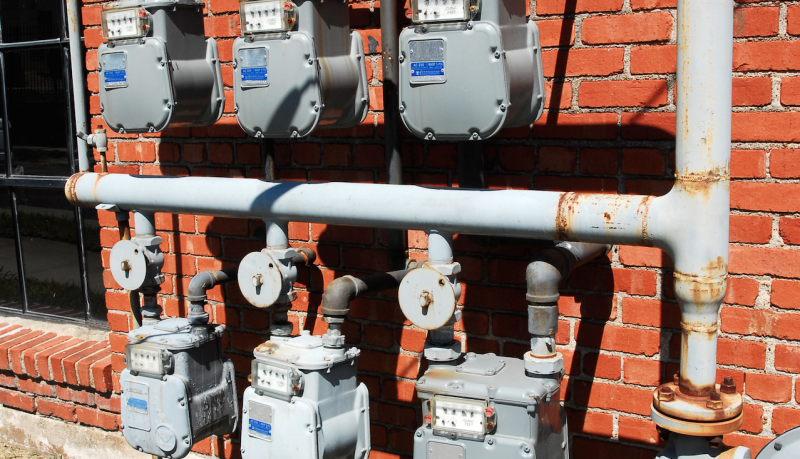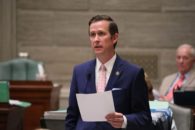JEFFERSON CITY, Mo. — A Senate bill meant to help Missouri utility companies receive financial help transitioning to renewable natural gas is on its way to the House.
SB 141, sponsored by Sen. Jason Bean, would require Missouri’s Public Service Commission (PSC) to allow gas companies to offer a voluntary renewable natural gas program. The commission would enact reporting requirements and a process to recover expenses from the program through an automatic rate adjustment clause, with the funds put toward installing and maintaining the equipment needed for the program. Recovery would not begin until the project begins operations.
Bean said the change would allow the PSC to make decisions on clean energy production, help companies offset the cost of the transition, and encourage natural gas production in Missouri.
“We have the unique opportunity to quite literally capture a problematic byproduct and convert it to clean, Missouri-made renewable energy,” Bean said. “Currently the PSC may consider these items, but could not make decisions based on whether the item was a prudent investment. The bill offers the use of waste products for clean energy, renewable natural gas, and a high-grade liquid fertilizer from the byproducts of the process.”
The bill would also restrict political subdivisions from adopting rules that prohibit the connection or reconnection of utilities based on the type of energy or service being delivered to the customer.
Bean’s legislation was perfected earlier this week, with a pair of clarifying amendments connected. Sen. Bill Eigel attempted to attach an amendment that would have exempted St. Louis County from decentralized emissions programs, arguing the language fit the underlying bill as it related to fuel. The amendment was ultimately withdrawn after Bean and other legislators spoke against it on the floor.
Bean pre-filed the legislation in December, telling The Missouri Times it would lower gas costs in the long run while encouraging Missouri to be a fuel producer. Bean, a farmer himself, said many in the agriculture and natural gas industries had approached him to sponsor the piece.
“I’m a farmer myself, and I understand animal agriculture and some of the problems they have had as costs have increased, so that’s why they looked to me. I knew this had been successful in other states, and anytime you can increase renewable fuel and create jobs, how great is that opportunity?”
Other states, including Oregon and Nevada, have implemented similar policies. Bean said he hoped to see Missouri follow in their footsteps.

Cameron Gerber studied journalism at Lincoln University. Prior to Lincoln, he earned an associate’s degree from State Fair Community College. Cameron is a native of Eldon, Missouri.
Contact Cameron at cameron@themissouritimes.com.































